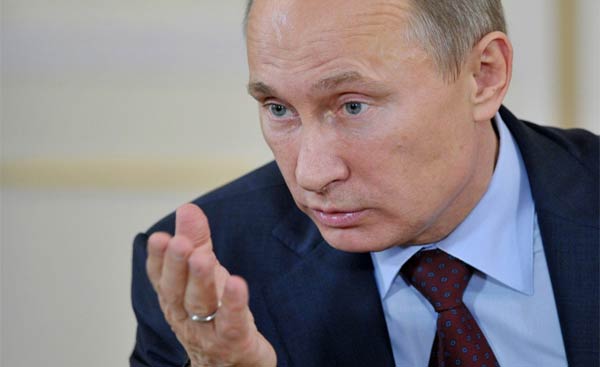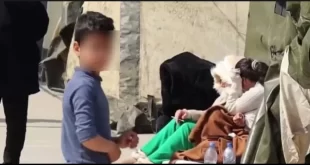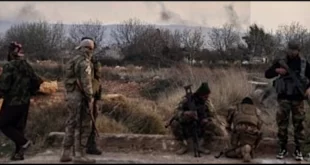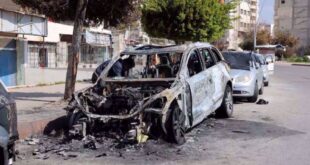
Sep 21, 2013, MEMO
Russian President Vladimir Putin has asked the big question that has been the elephant in the corner as the debate continues about Syria’s possession and use of chemical weapons: What about Israel’s nuclear weapons?
Putin was speaking in defence of Moscow’s position on the Syrian crisis, in particular the chemical weapons issue. Observers were surprised by the reference to Israel’s nuclear arsenal, which is normally off-limits in such international forums, and Putin’s attempt to link the caches of weapons of mass destruction in both countries. The Russian president pointed out that Syria’s chemical weapons have served as a counter to the threat posed by Israel’s nuclear weapons; he called for the Middle East to be a nuclear-free zone.
Continuing to deny the Syrian regime’s responsibility for the chemical weapons attack last month, Putin presented “technical” evidence collected by his advisers. “The attack used an old Soviet shell of a kind no longer used by the Syrian army,” he claimed.
As the war of words between Russia and the US continued on this issue, Secretary of State John Kerry tried unsuccessfully to persuade his Chinese counterpart Wang Yi to back a “binding” UN Security Council resolution to remove the Syrian chemical. Nevertheless, Kerry praised China’s support for a political solution, “the only available and possible solution”. The Secretary of State also urged the UN Security Council to vote as soon as possible on the text of a possible resolution that would oblige Syria to respect a plan to dispose of its chemical weapons.
President Bashar Al–Assad has vowed to hand over his regime’s chemical weapons but warned that this could take many months and millions of dollars before the process is complete. In an interview with Fox News, Assad stressed that the ideology of the rebels in his country should be a cause for serious concern not only in Syria but also in neighbouring countries and even the United States. It is not a civil war, he insisted, but “an attack by Al-Qaeda”. Up to 15,000 Syrian soldiers have been killed so far, claimed Assad, but he expressed his government’s willingness to offer an amnesty, “even for those whose hands are stained by Syrian blood”, as an act of national reconciliation. Commentators have pointed out the significance of Assad’s offer, coming as it has after a spokesman for his government said that the conflict is at an “impasse”.
In an interview with Britain’s Guardian newspaper, Deputy Prime Minister for Economic Affairs, Qadri Jamil, said that the Syrian authorities will ask for a ceasefire in the event that the “Geneva 2 Conference” goes ahead. He added that neither side in the conflict is able to win but insisted that there would have to be international monitors for any ceasefire.
The easing of the threat of military action against the Syrian regime has had a positive effect on Lebanon already, Russia’s Deputy Foreign Minister has claimed. Heading back to Moscow after talks in Damascus, Sergei Ryabkov noted that the flow of refugees across the border into Lebanon appears to have slowed. “If there is a war, however, it will have a negative effect not only on Syria but Lebanon and other neighbours,” he said.
 Syria Support Movement solidarity with the Syrian people
Syria Support Movement solidarity with the Syrian people




